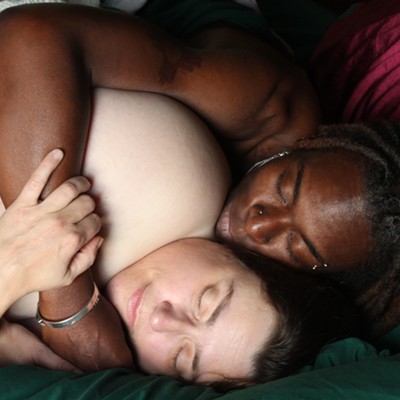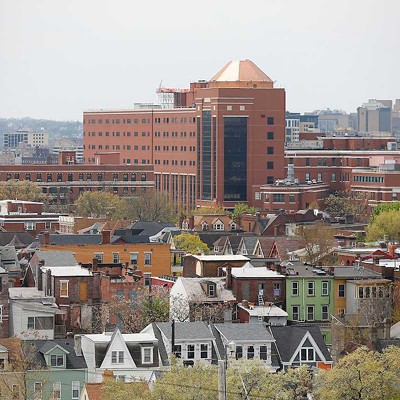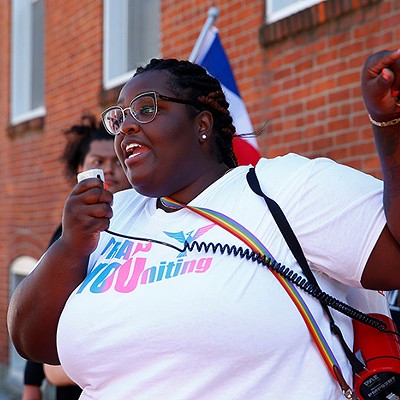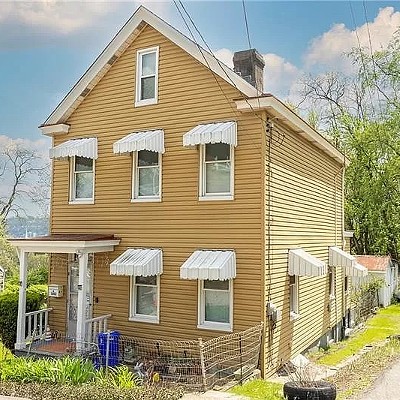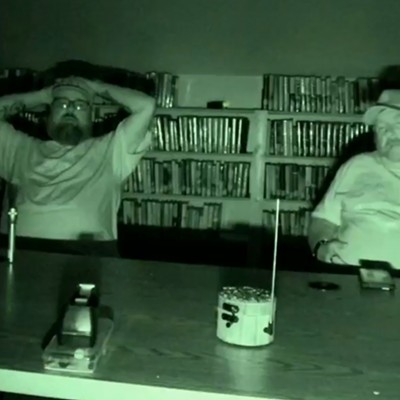Thursday, October 27, 2016
LGBTQ+ Pittsburghers 'spill the T' with black elected officials
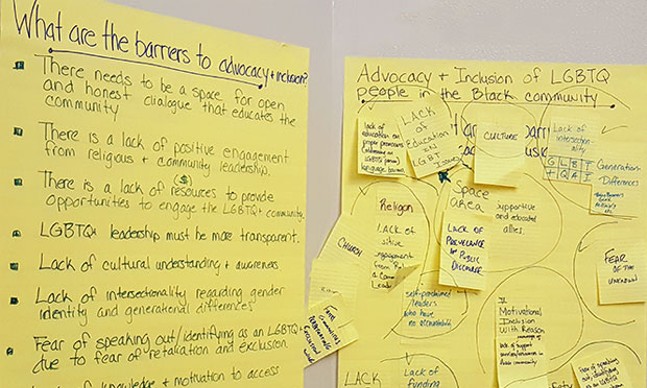
CP photo by Rebecca Addison
One group was tasked with the issue of advocacy and inclusion of LGBTQ+ people in the black community.
"These are the issues our community is facing," Rev. Shanea Leonard, pastor at Judah Fellowship Christian Church, said at a gathering of LGBTQ+ Pittsburghers and elected officials last night.
The event was one of several community roundtables black elected officials in the Pittsburgh area — including state representatives Ed Gainey and Jake Wheatley, Pittsburgh city councilors Daniel Lavelle and Ricky Burgess, and Allegheny County Councilor DeWitt Walton — have held in the last few months. It was hosted by Judah Fellowship and New Voices, a reproductive-health organization, to "spill the T on" (or expose) issues of specific importance to LGBTQ+ people of color.
"At this political moment, it's important to center the most marginalized people," said La'Tasha Mayes, executive director of New Voices. "As we talk both about Pittsburgh being the most livable city and the Black Lives Matter movement, it has to be livable for everyone and all black lives have to matter."
Among the issues discussed was inclusion and advocacy of LGBTQ+ people in the African-American community. Participants tasked with discussing this issue said negative attitudes about LGBTQ+ people within the black community are often the result of religious beliefs and the myth of the downlow: the belief that men in the community are identifying as heterosexual but having sex with men secretly.
Essentially, this discrimination many experience in their own community carries over into their housing, employment and even health care.
"Thirty-one percent [of respondents] experienced a health-care provider reacting negatively toward them and their LGBTQ+ selves," Leonard said of the Persad survey. "That means folks are still — in this day and age, in this city — folks are still not open enough to accept us."
In the area of housing, LGBTQ+ teens are some of the hardest hit. As a possible solution, some at the event advocated for a LGBTQ+ specific homeless shelter because they said many youth in their community get kicked out of their homes because of their identity.
"The majority of homeless teens happen to be a part of the LGBTQ+ community. It's a real problem," said Leonard.
And in addition to the role discrimination plays in preventing LGBTQ+ people from getting hired, it also plays a major role in their job performance and satisfaction. Participants said other workplace barriers include gender-binary bathrooms.
"Unemployment and underemployment remains a barrier for the LGBTQ+ community. I can't tell you how many folks I talk to where just getting a job and holding a job is an issue when they live in their truth," Leonard said. "And let's not forget that Pennsylvania is still the only state in the Northeast that still doesn't have a non-discrimination law. That means you can still be fired from your job, and it's legal because you are LGBTQ or perceived to be part of the LGBTQ community."
The Persad survey also revealed problems LGBTQ+ individuals face when interacting with law enforcement. Seventy-three percent of respondents said they'd had face-to-face contact with police within the past five years, and of those, 14 percent reported verbal assault, 3 percent sexual assault and 2 percent physical assault.
Organizers hoped the event would drive their elected officials to better understand the needs of LGBTQ+ people of color and to address their issues.
"There's so many organizations and efforts that don't focus on this particular segment of the community," said Mayes. "We're going to continue working with these elected officials because when has this ever happened before? We want to keep them engaged."
Tags: LGBT , LGBTQ , HIV/AIDS , housing , employment , discrimination , health care , police , Image




